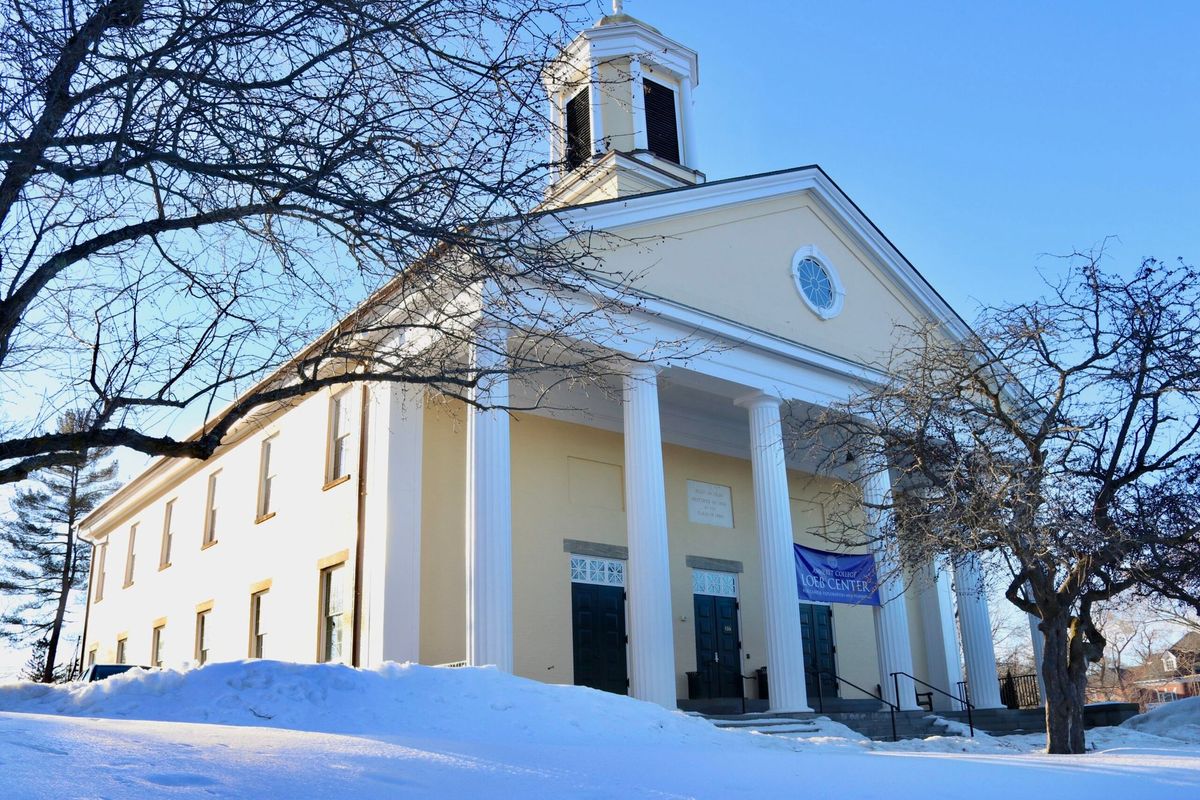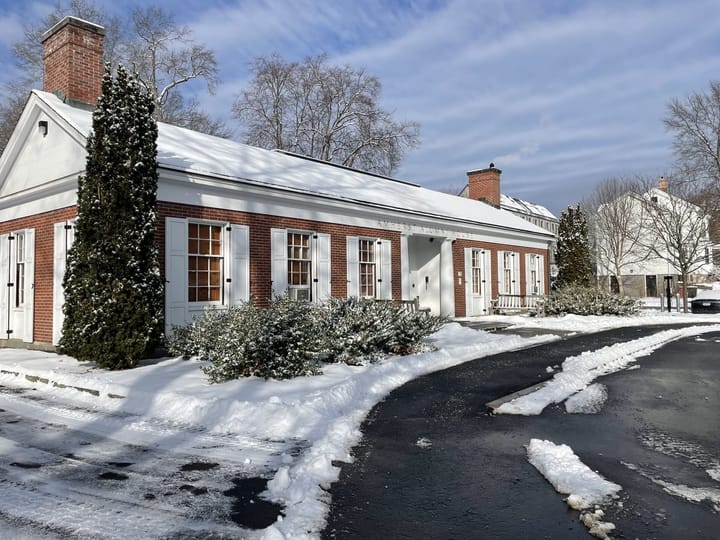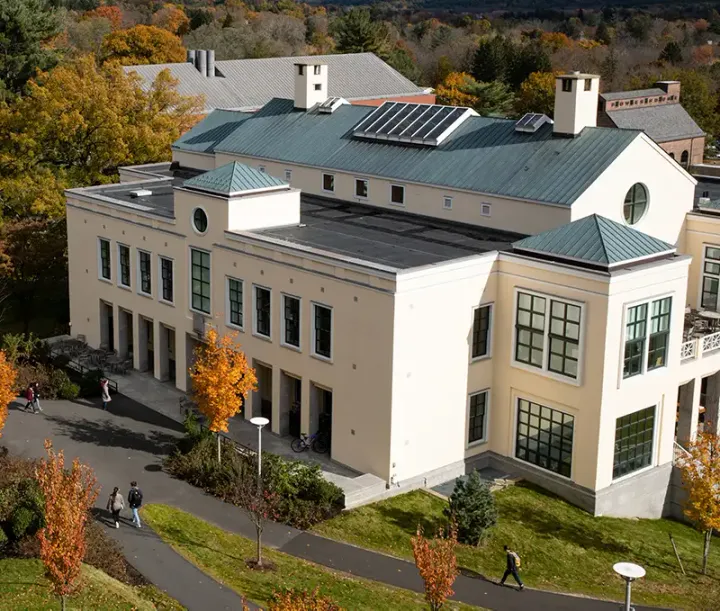Loeb Center Hosts Inaugural Sophomore Summit
More than 100 sophomores participated in the program, which is designed to help students build fundamental career skills. It will be required for all sophomores beginning next year.

More than 100 members of the class of 2026 and 34 alumni participated in the Loeb Center’s inaugural Sophomore Summit last week. During three days of events across campus, students practiced fundamental career skills: writing cover letters, brainstorming potential career paths, and networking with alumni.
This year’s summit was an optional pilot program. The program will be mandatory for all sophomores beginning next January.
Executive Director of the Loeb Center Emily Griffen said the summit arose from conversations she had with President Michael Elliott and Provost Catherine Epstein about their shared desire to increase the equity and visibility of career-planning services on campus. It was partially modeled on a similar program at Bowdoin College.
“How do we make sure that by the time people are looking for a job when they’re seniors, it’s as level a playing field as possible?” she said.
Griffen said that she also hopes the summit will provide more structure for sophomores.
“There were other conversations going on on campus about better scaffolding the sophomore year,” she said. “There’s tons of infrastructure and support and targeted programming and attention for first-year students, and then they become sophomores and all that goes away.”
The summit began on Wednesday, Jan. 24 with remarks from President Michael Elliott and the keynote speaker, Anne-Claire (Ace) Roesch ’08, a senior manager at Deloitte Consulting. This was followed by a series of workshops on writing resumes and cover letters and preparing for job interviews.
On Thursday, an activity titled “Designing Your Life” asked students to imagine a number of career paths for themselves and reflect on deeper questions, even including whether they believe in a “higher power.” Later, sophomores had headshots taken by professional photographers and engaged in one-on-one practice “informational interviews” with more than 100 alumni volunteers over Zoom.
On Friday, students broke out for industry-specific panels with the 34 alumni who attended in person. There was a final networking reception for students and alumni that afternoon.
The summit included social events in the evenings, such as ice skating and an improv performance.
Upperclassmen also participated in the summit as paid Peer Leaders, assisting cohorts of sophomores as they worked through activities.
Students and alumni described the summit as a success, especially given that the program was in its first year, while also pointing to a few areas for improvement as the Loeb Center prepares to expand the event to the entire class of 2027 next January.
“Overall, it was a really great kickoff to a program,” said Chip Garner ’89, a communications executive from New York City who attended the summit in person and has served as an alum-in-residence at the Loeb Center in the past.
He emphasized that the alumni in attendance got as much out of the summit as the students.
“As someone who, as an executive, hires lots of people, it was really eye-opening to me to kind of have that feedback from them about what their concerns are.”
Isaias Wooden ’26 said he especially enjoyed the networking opportunities.
“I’d say the biggest thing I got out of it was interviewing,” he said. “I was a bit hesitant at first, but I was on a Zoom call with two alums whose careers are very similar to my aspirations, even though their majors were completely different, so it was great to chat with them.”
Emma Abell ’26 agreed and said she was surprised by the willingness of alums to give their time to current students.
“The most interesting part to me was talking to alumni and hearing about their career journeys,” she said. “That made reaching out to alumni less scary … before I didn’t think of the alumni directory as something that would be useful for us.”
Tom Ye ’25, who served as a peer leader, said he thought students got a lot out of the program, but also emphasized that he hopes to see more opportunities for small-group interaction between peer leaders and sophomores in the future.
He hoped for “more leeway in terms of actually helping facilitate our groups [because] I feel like a lot of us were just sitting there while the lectures were happening.”
Abell agreed that fewer lectures and more small group events would make the summit more enjoyable and contribute more to building a sophomore community.
Ye also said that there was a notable drop-off in student attendance throughout the summit. He suggested that some students may have been turned off early on by longer lectures on resumes, cover letters, and interviews, while more exciting events like the alumni panels took place later in the week.
Part of this issue, Ye said, is that students came into the program at different stages of their career planning.
“[The program] was assuming that everyone starts from scratch, while some people already have completed resumes, completed cover letters,” he said. “They don’t need that workshop.”
Griffen said that in future iterations of the summit, these types of workshops may become optional, or there may be opportunities for more “advanced” instruction.
Reflecting on the event as a whole, Wooden encouraged future sophomores to make the most of the opportunity.
“If someone is giving you a key to an easier life or giving you binoculars to see into the future, why not use them?” he said.





Comments ()